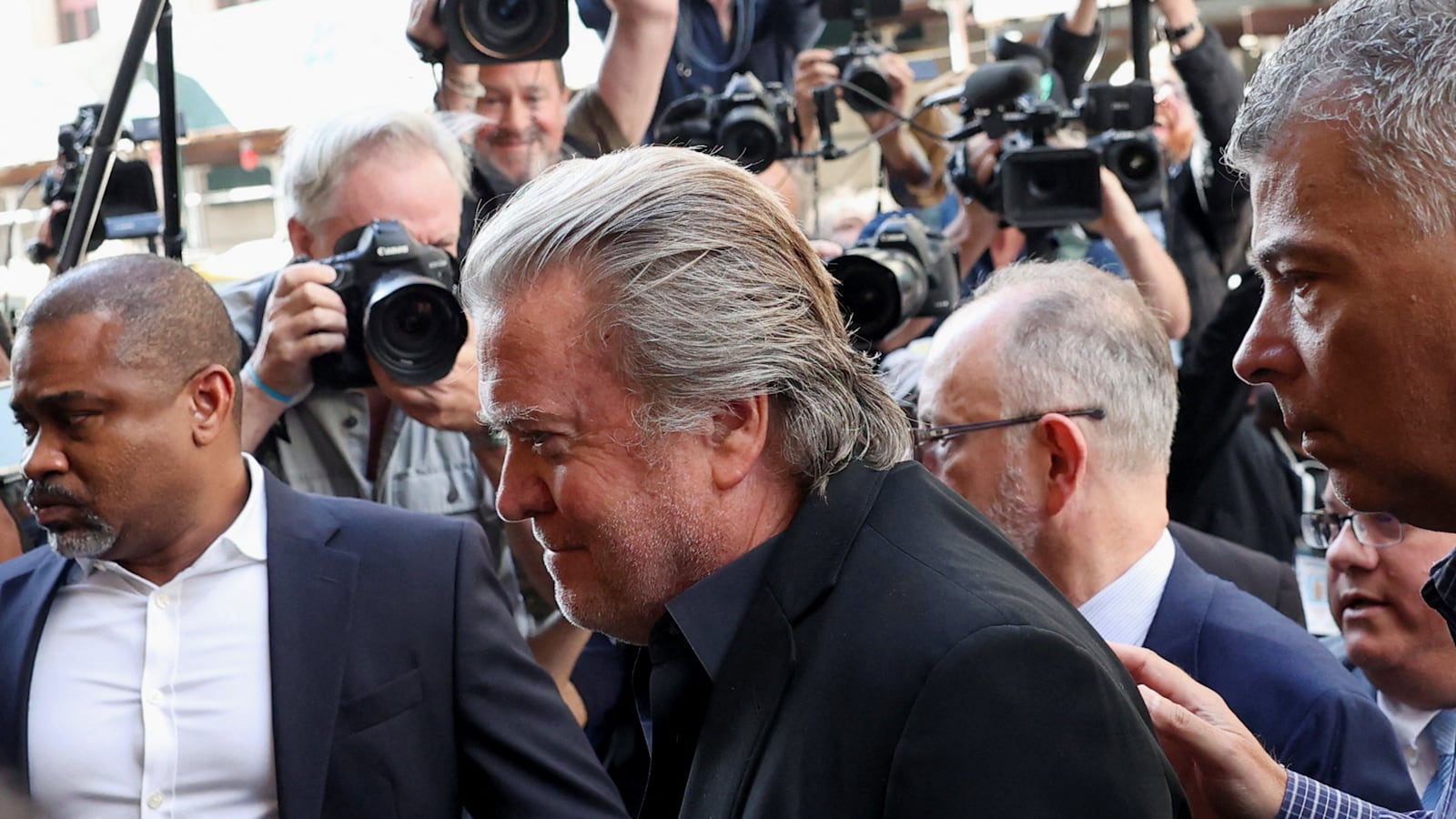Manhattan prosecutors got hold of text messages in which right-wing provocateur Steve Bannon laid out exactly how he and his pals were going to siphon off donor funds to quietly enrich themselves with a GoFundMe that promised to build Trump's Mexico border wall, according to an indictment made public on Thursday.
"[No] deals I don’t approve; and I pay [Brian Kolfage] so what’s to worry,” Bannon texted an associate on Jan. 15, 2019, according to the indictment.
The next week, Bannon texted that associate with concerns about how his anti-immigrant non-profit, Citizens of the American Republic, was going to be repaid. Later that month, he ordered that associate “we need wire of cash to [CAP.]"
The incriminating messages, which show how Bannon played a key role in the scheme to dupe xenophobic donors, were laid out in a grand jury indictment that was unsealed in Manhattan criminal court.
Bannon turned himself in Thursday morning to the Manhattan district attorney's office. He now faces two counts of money laundering, two counts of criminal conspiracy, and one charge of "scheme to defraud."
Local prosecutors are attempting to nail him for crimes that former President Donald Trump had already pardoned. However, that presidential Get Out of Jail Free card only applied to a previous federal case that had to be dropped. The DA operates at a state level and doesn’t have to abide by that pardon.
Bannon must turn over his passport and is scheduled to be arraigned at 2:30 p.m., according to a source familiar with the case. That person said the DA’s case is being handled by two prosecutors in the office’s economic crimes bureau: assistant district attorneys Daniel Passeser and Michael Frantel.
The U.S. Constitution guarantees that a person cannot be prosecuted twice for the same crime, a concept known as “double jeopardy.” However, New Yorkers fed up with rampant corruption during the Trump administration sought to create a loophole of sorts in 2019, allowing the state to pursue criminal charges on a local level that weren’t being addressed at the federal one.
The Manhattan DA’s office has taken the same approach with other Trump World associates. Last year, it brought a criminal cyberstalking case against another person who’d previously received a Trump pardon: Ken Kurson, a former newspaper editor who’s close to Trump’s son-in-law, Jared Kushner. Earlier this year, Kurson took a plea deal for unlawfully spying on his ex-wife.
Bannon's case stems from his role in a sketchy GoFundMe that misused money to construct a privately-funded wall between the United States and Mexico, fulfilling a 2016 Trump campaign promise when the federal government was slow to do so.
He teamed up with a wounded Iraq War veteran, Brian Kolfage, and together they collected money from what the Department of Justice described as "hundreds of thousands" of donors for a project dubbed "We Build the Wall." While Kolfage promised he would “not take a penny in salary" and Bannon described it as “a volunteer organization,” federal investigators later found that they siphoned off tons of money for personal use.
Kolfage, who is accused in the indictment of paying himself more than $350,000, pleaded guilty in April. But Bannon's case never got that far. He was accused of using a nonprofit to reroute more than $1 million and arrested while hanging out on a Chinese billionaire's yacht off the coast of Connecticut. But then Trump pardoned him during his last weeks in office—a big favor to his former White House chief political strategist.
The nonprofit he used to reroute those donations, the so-called "economic nationalist" group named Citizens of the American Republic, was recently targeted by the Internal Revenue Service. In August, the IRS stripped the nonprofit of tax-exempt status.





